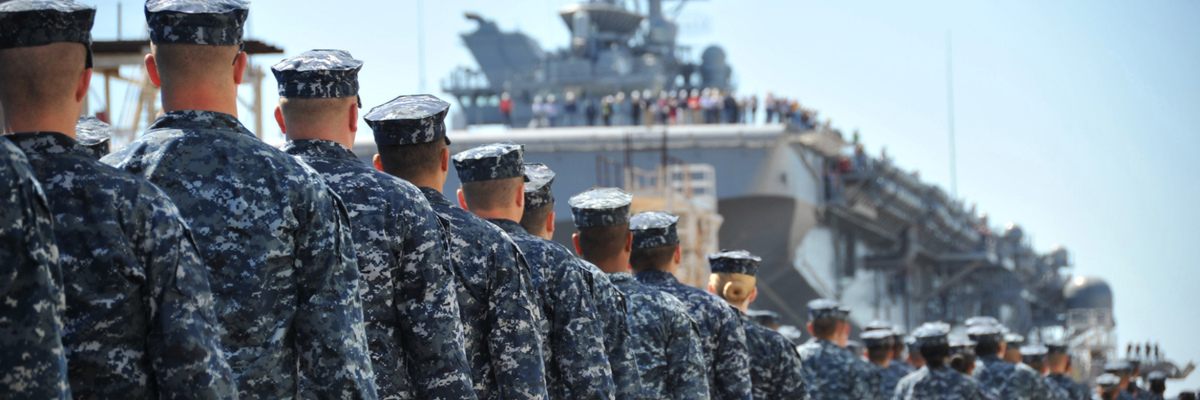A U.S. Navy “Freedom of Navigation Operation,” conducted last week within India’s maritime Exclusive Economic Zone, or EEZ, was met with protests from the Indian Ministry of External Affairs, as well as members of the Indian defense and political establishments.
The U.S. Navy has conducted Freedom of Navigation Operations, or FONOPs, since the height of the Cold War in the 1960s as a means of challenging other coastal states’ claims to maritime jurisdiction that it judges as excessive, in order to prevent those claims from achieving acceptance under customary international law. These operations were formalized during the Carter administration in 1979 under the rubric of the U.S. Freedom of Navigation Program, which combines operational assertions with diplomatic protests and consultations.
U.S. government practice regarding the publicization of FONOPs has varied over the years. Since 1991, the Department of Defense has published basic information about U.S. FONOPs in annual reports, but in more recent years, the Navy’s Seventh Fleet has publicized the FONOPs it conducts on a more real-time basis on its website.
The U.S. government defends its Freedom of Navigation operations by saying that the United States conducts FONOPs against “excessive” maritime claims of nations around the world, friend and foe alike, “based on principle rather than identity of the coastal State asserting the claim.”
There are the limits to the truth of this claim, however. Though the United States does conduct FONOPs against not only rivals but also allies and partners, it still picks and chooses, conducting FONOPs in areas of greater geostrategic significance to U.S. interests.
This means that the U.S. Navy conducts FONOPs more frequently against some countries than others. Most notably, it has never conducted formal Freedom of Navigation operations against Australia or Canada, despite objecting to a number of their “excessive” claims.
For example, Washington rejects Australia's historic bay claims in Anxious Bay, Encounter Bay, Lacepede Bay, and Rivoli Bay. It also objects to the practice of mainland states drawing straight baselines around offshore island groups, such as those drawn by Australia around the Abrolhos Islands. (For unclear reasons, however, it does not appear the United States has formally protested the Abrolhos baselines.) It likewise objects to Canada's straight baselines around the Arctic Archipelago and treatment of the waters therein — a.k.a. the Northwest Passage — as internal waters.
In neither case has it challenged these claims with military FONOPs. In the case of Canada, Washington instead struck a private deal with the Canadian government to permit the passage of its Navy submarines within the waters of the archipelago in order to manage the dispute.
In contrast, the United States has conducted FONOPs against most other countries in the Indian and Pacific oceans that make what it deems to be “excessive” maritime claims — a group that includes virtually all coastal Asian countries, including Japan, South Korea, North Korea, China, Taiwan, the Philippines, Vietnam, Cambodia, Malaysia, Indonesia, Thailand, Myanmar, India, Pakistan, Bangladesh, and Sri Lanka.
Using unilateral military operations to accuse Asian countries of violating the law of the sea — when the U.S. has not even ratified the most relevant international legal convention, the U.N. Convention on the Law of the Sea — is probably not the best way to win friends and influence people in Asia. This is especially true when there is at least the appearance of a double standard when it comes to the U.S. pursuing diplomacy instead of military FONOPs against the “excessive” claims of white-European-descended governments in Canberra and Ottawa.
Instead of using military operations to try to impose its version of the so-called “liberal rules-based international order” on a world of mostly formerly colonized nations, the United States should adopt a less militarized approach toward freedom of navigation.
Washington should discontinue operational assertions and rely instead on the diplomatic protest and consultations track of the Freedom of Navigation Program to protect its rights to freedom of navigation.
Indeed, the very fact the United States deems as "excessive" the maritime claims of such a broad swath of states in Asia suggests that perhaps it would do well to adopt a more compromise-oriented approach that does not deliberately disregard the security concerns of coastal states, especially non-Western formerly colonized nations, who have legitimate reason to fear foreign naval power given the history of its use in their subjugation.
The maritime security concerns of nations in South Asia, Southeast Asia, and Northeast Asia that lead them to restrict foreign military navigation are not going away, especially as China's navy emulates the U.S. Navy in operating more frequently in other countries' waters.
The United States should work together with Asian nations to identify balanced compromises that can help them to feel more secure, while enabling the major maritime powers like the United States and China to navigate their navies in ways that adequately protect their overseas interests.
The good news is that non-governmental, Track II efforts by the EEZ Group 21, a group convened by the Ocean Policy Research Institute consisting of experts from several countries — Japan, the U.S., China, South Korea, Indonesia, the Philippines, Vietnam, Australia, India and Russia — have already crafted an initial set of guidelines. As I wrote in a recent report published by the Carter Center, the U.S. should use these guidelines as the basis for negotiating an inclusive agreement with Asian states to clarify key contentious issues related to foreign military activities in EEZs.
Rather than acting entitled to conduct military operations wherever it wants regardless of other countries' laws and security concerns, the United States should instead treat other countries as partners in crafting shared solutions to promote mutual security.
















